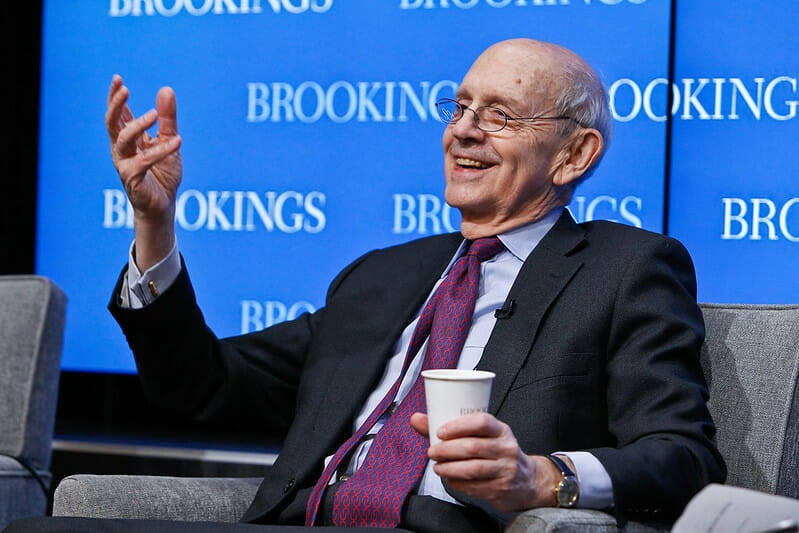Disabled people are facing a new kind of ableism, eco-ableism. Despite being the most vulnerable to the effects of climate change, they are one of the most neglected groups when it comes to the climate movement. From bans on plastic straws, to evacuation and disaster relief programs, activists, politicians and individuals fail to consider the needs of disabled people when it comes to the climate movement.
Ableism is the discrimination and social prejudice against disabled people as individuals and as a whole. It is rooted in the belief that disabled people are less-than and require fixing to make them more like typically abled people.
Ableism exists on a systemic and individual level. On a systemic level it can appear in government policy and benefits for disabled citizens. In the United States, for example, some disabled people can lose their life saving benefits and medical care if they choose to get married. Additionally if a disabled person has over $2,000 in assets they can lose their Supplemental Security Income. For people who can’t work due to a disability the Supplemental Security Income is essential to their monthly bills and well-being. This makes it absurdly difficult for disabled people to live or pursue other potential avenues of income if they fear losing their benefits.
Sometimes online job applications will say that applicants must be able to carry over 25 pounds for jobs that don’t list any heavy lifting in the job description. This often is not an actual requirement of the job, but is a sneaky way to screen out disabled applicants. Inaccessible buildings, webinars without captions, construction, events, or objects that block sidewalks are a few of the many ways disabled people are neglected in everyday society.
What is eco-ableism
Eco-ableism is ableism in the environmental movement and from environmental activists who fail to take disabled people into account.
Initiatives that reward individuals who bike to work, or for taking public transport do not include disabled individuals who cannot bike and for whom public transport is inaccessible.
Starting in 2018 plastic straws and single use plastics came under fire for being wasteful and were widely banned. While the manufacturing and disposal of single use plastics no doubt contribute to climate change, the public focus on (and demonization of) plastic straws was distracting and exclusionary.
The focus on straws drew attention away from larger systemic issues that contribute to climate change such as changing government policy and holding large corporations accountable, and ignoring disabled people’s needs for plastic straws. Many activists said that people should switch to paper straws or metal ones. Some disabled people drink slowly, so paper straws would disintegrate and are not stiff enough once they get wet to hold their shape. Metal straws can be too heavy and difficult to use if a disabled person needs a straw that bends.
The video below was created by an organization that is working to keep our oceans clean from non-recyclable single use plastics for their campaign against plastic straws.
While the goal to reduce ocean plastics is a noble one, the tagline #stopsucking is disrespectful to disabled individuals who need straws to survive and thrive. When individuals and organizations exclude disabled people, they send the message that disabled people’s needs do not matter.
Here is a video from a disabled person in response to plastic straw bans.
https://www.youtube.com/watch?v=Ar-3-sv_Gs8&t=211s
The public outrage at the use of plastic straws is a symptom and an outcome of eco-ableism. Being unaware of disabled people’s needs and not thinking of ways to include them in the push for sustainable living harms disabled people and the climate movement.
Eco-ableism doesn’t only come from climate activists, but has become more pervasive in culture and society. Pre-packaged and pre-cut food is often seen as lazy and wasteful “why can’t someone just cut mushrooms themselves,” “it’s ridiculous that stores are selling peeled oranges and cut up mango in plastic containers, how wasteful!” Comments like these create narratives that people who purchase pre-cut or peeled foods are inconsiderate and don’t care about the environment.
For many disabled people, the only way they can enjoy certain foods or cook a nutrient rich meal, is if they buy these prepared items. At the root of arguments like these, whether intentional or unintentional is that disabled people don’t deserve to enjoy the same things as typically abled people.
Eco-ableism is also pervasive when it comes to dealing with the effects climate change.
Evacuation plans and resources for natural disasters or extreme weather events are often inaccessible to disabled people. Someone who uses an electric wheelchair cannot get through two feet of water to safety. Even smaller disasters like a fire starting in an office building would leave a disabled person stranded as many evacuation plans tell people to take the stairs and not an elevator.
Leaving disabled people out of emergency planning is deadly.
In emergencies, disabled people have a disproportionately higher mortality rate than typically abled people. Disabled people are especially vulnerable to extreme weather events not just because of inaccessible evacuation, but also because power outages can be life threatening to someone who depends on electronic medical equipment to keep them alive. Moreover, disabled and elderly individuals especially are at risk during heat waves if they don’t have adequate support, resources, and climate control in their homes or living facilities.
Because of the governmental systems in place that weigh down on disabled people, as mentioned above, many disabled people are not properly housed and don’t have additional resources to provide for themselves during emergencies. With more extreme weather events on the horizon disabled people will suffer without the proper systems in place that protect and provide for them.
Aside from being harmful to disabled people, eco-ableism that shows up in encouraging lifestyle changes distracts us from holding major polluters accountable and changing government policy by keeping us focused on the war against straws.
Any environmentalism that claims individual lifestyle changes are the only way to combat climate change is ableist (and a lie). Fighting for inclusion and rights for disabled people, and fighting against climate change are not mutually exclusive. Both require a combination of policy changes, holding corporations accountable, and changing the immediate world around us to make it more accessible, and more sustainable.
Living a “sustainable lifestyle” is not easy for the majority of the world’s population. Many people are without resources, time, energy, and money that would make switching to a more sustainable lifestyle feasible for them. People living paycheck to paycheck should not be expected to make the same lifestyle changes as someone with means and time to live a more sustainable life. This fits into the larger idea that individual change is not the only solution to climate change.
Instead of policing and judging individual’s behavior, activists and individuals who want a better world should focus on changing the systems that allow companies and countries to profit from the exploitation and destruction of the planet. Without empathy environmentalism cannot go very far.
Editor’s Note: The opinions expressed here by Impakter.com columnists and contributors are their own, not those of Impakter.com. — In Featured Photo: Disability Symbol Credit: Maxpixel








